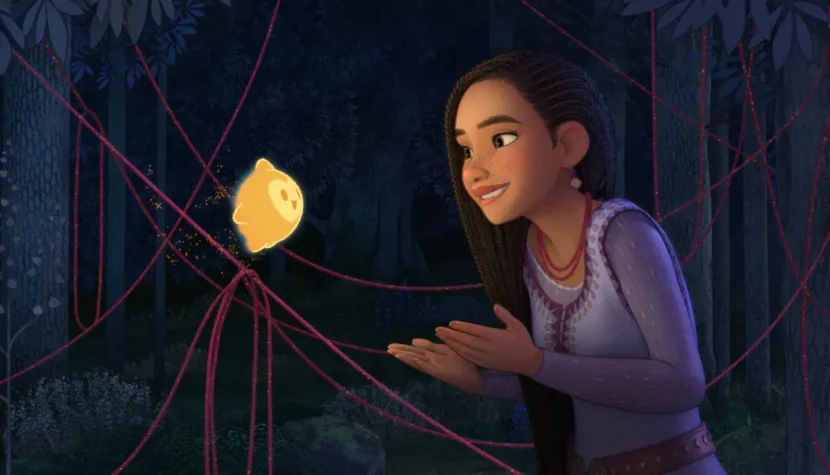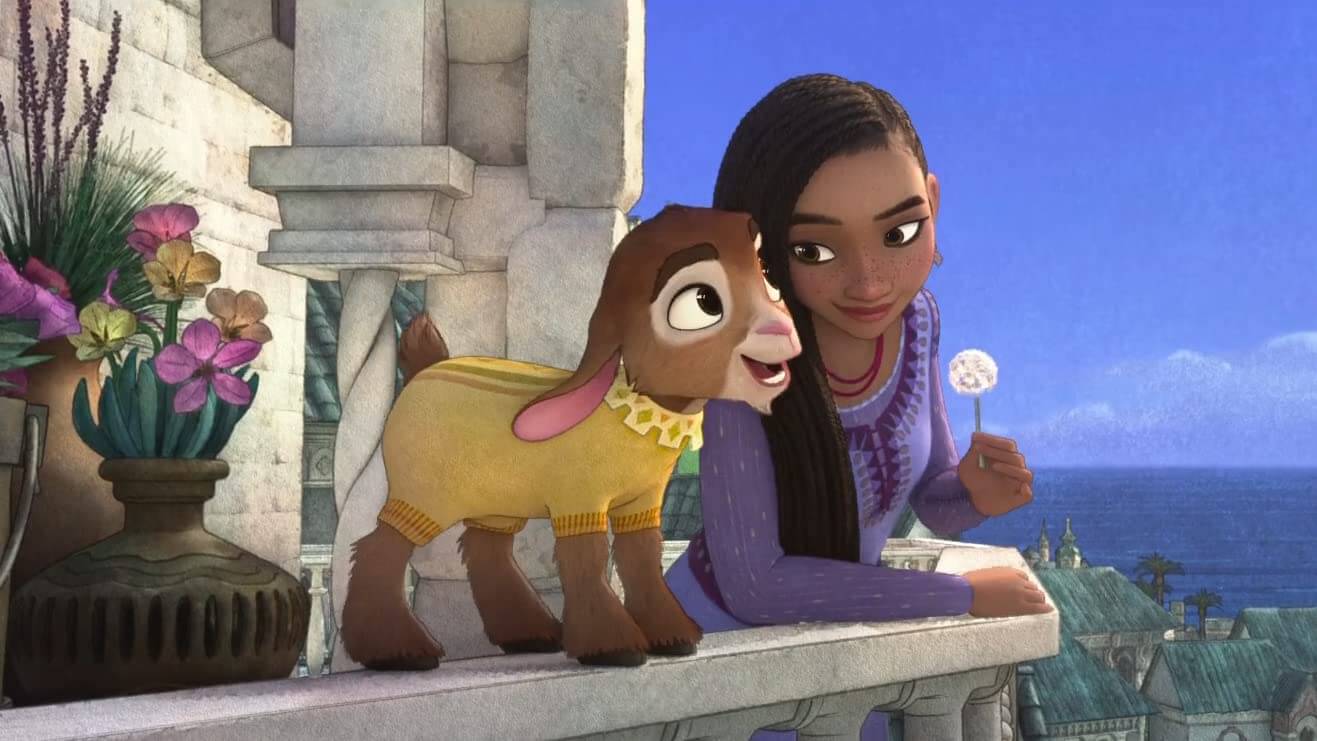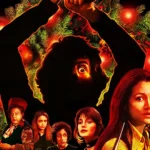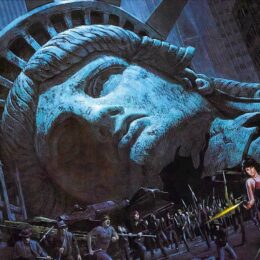WISH. Where is your gratitude? [REVIEW]

Hundreth birthdays are celebrated only once in a lifetime. Walt Disney, who passed away in December 1966 at the age of just over 65, did not experience this. However, the film studio he founded did – along with his younger brother, Roy O. Disney – in October 1923. Such a significant jubilee calls for grand celebrations. The business successors of the pioneer of animated cartoons, therefore, lit fireworks. A charming short film featuring the most iconic characters lining up for a group photo in front of the company’s California headquarters has landed on Disney+. In addition, before each film released by the studio this year, an impressive montage has been shown, compressing a hundred years of history into a few exceptionally emotional minutes. There’s no denying it: when a child’s face lights up with a smile, a tear rolls in the eye of an adult viewer. The cherry on top was supposed to be ‘Wish’ – the latest full-length animation in the Walt Disney Pictures portfolio.
I would gladly announce that everything went according to plan, and the studio responsible for shaping our collective childhood created something truly special and unique for such a special occasion. Unfortunately, I cannot do that. Asha’s story is one of the most generic and uninteresting tales in Disney’s repertoire so far. Living in the fairy-tale kingdom of Rosas, the girl discovers that Magnifico, who collects dreams from the subjects, is actually an inflated buffoon driven not by the happiness of the residents but by personal gain. The utopia reigning in the kingdom is only superficial, and power, as is well known, corrupts. The heroine decides to steal the dreams in the king’s workshop and return them to their rightful owners so that they can fulfill them themselves. She is assisted by a group of conspirators and a mysterious star with cosmic power.
A genuinely interesting starting point is completely squandered by a banal development in which the driving forces are, without any narrative motivation, the power of the song and the strength of friendship. The whole thing feels like an empty template, with the autonomous, engaging story taking a back seat – the most important thing is to cram as many intertextual references as possible into the barely half-hour projection. So, ‘Wish’ might be a real treat for experienced Easter egg hunters, but for the rest, it will be a rather average, unremarkable cinematic experience – ground up and ejected along with the obligatory mix of popcorn and cola. However, every viewer’s eyes will likely roll at the forced dialogues about “being Bambi,” the “need to create a zoo city,” or the “closing circle of life,” and blink a few times too many when three-dimensional animals pop out of the two-dimensional, drawn forest. In such moments, ‘Wish’ ceases to look like a fresh animation from a prominent film studio and starts to resemble the sweet-bitter consequences of a group drug experiment during a screening of ‘Snow White.’

What doesn’t disappoint in Chris Buck and Fawn Veerasunthorn’s animation is undoubtedly the songs. Here, Walt Disney Pictures presents its standard, very high level. Throughout the film, one eagerly awaits the next singing segments – they enhance the film, push the action forward, and allow us insight into the fragile, barely outlined psychology of the characters. The most interesting scene in this regard is the one accompanied by the song ‘Who, if not me?’ During this scene, the main character and antagonist sing their love for the inhabitants of Rosas, standing in front of a giant collection of their dreams. As it turns out later: the heroine is completely sincere in this feeling, while the hero is not particularly, as he expresses in his solo number, suggestively titled ‘Where is your gratitude?’
Related:
I would like to believe that… or rather, I would wish that ‘Wish’ is actually a cleverly disguised, shamelessly self-ironic satire on the corporate greed of Bob Iger, the company’s leader who – earning tens of millions of dollars annually himself – admitted a few weeks ago that the demands of striking screenwriters are absurd and unrealistic. The century-old studio would probably see itself most willingly in the role of a magical star from the sky (a wishing star, one of the most important visual symbols of Disney), making everything extraordinary. In its current form, however, it is definitely closer to the evil king Magnifico – a powerful, disgustingly rich sorcerer who exercises absolute control over the dreams of the subjects. The antagonist feeds his inflated ego with the adoration bestowed upon him by the inhabitants, but deep down, he calls them riffraff and rabble. Just like the current leaders of Disney, he only brings to life those projects that he deems “safe,” i.e., not threatening his personal hegemony – the risky, more daring ones will forever remain unfulfilled.

If the realization of ‘Wish’ were a dream of one of the characters in the film, Magnifico would fulfill it without batting an eye. Everything here is painfully safe: from the choice of directors of ‘Frozen’ and ‘Frozen II,’ the two most profitable Disney animations in history, to the sketchy plot and the tone of intertextual references. However, it seems that the strategy of extreme artistic risk minimization will backfire on the company. ‘Wish’ is already the worst-received Disney animation in years – box office predictions are not impressive either. So, it seems that viewers will not give Mickey Mouse the birthday present of his dreams. In the mind’s eye, I see the Disney CEO leaning out of the balcony of his multi-story ivory tower to shout at us – the simple, ambition-deprived mob: ‘Where is your gratitude?'”





